Steven Wilson on the return of Porcupine Tree
“My natural inclination is to not be a team player”
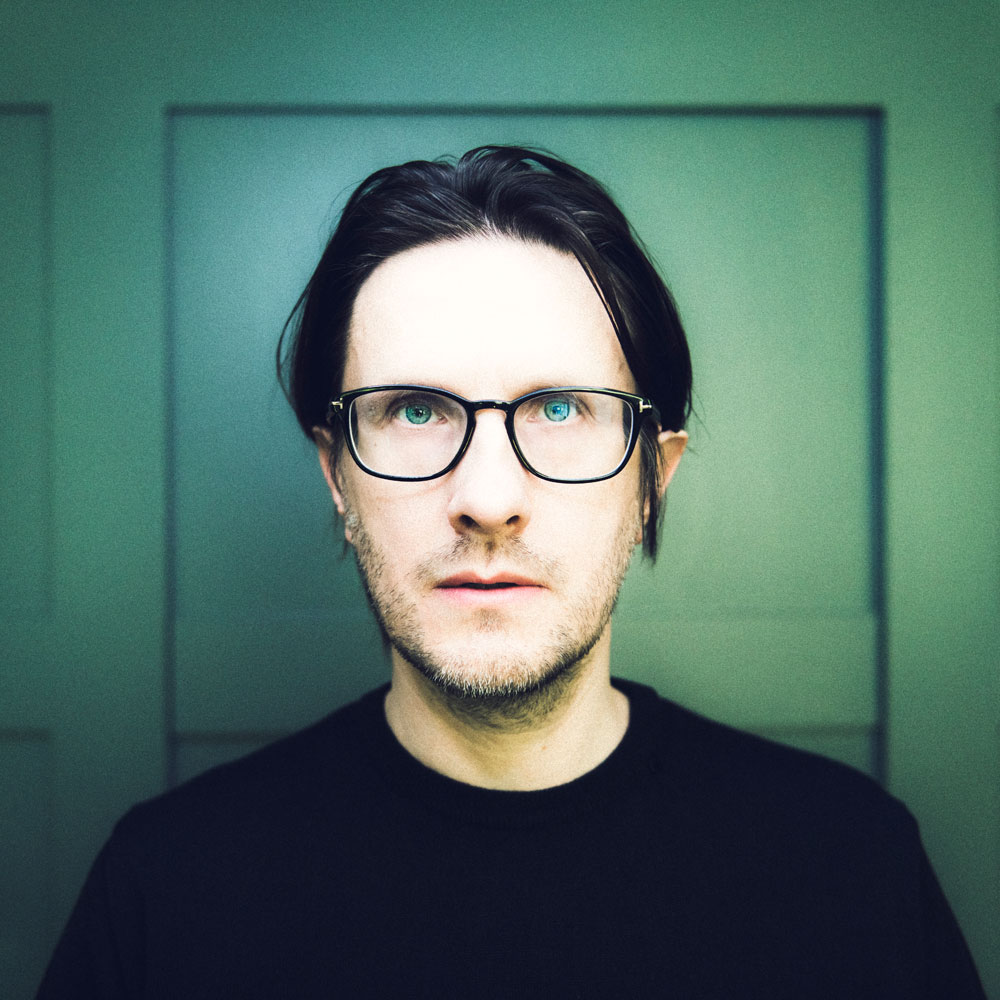
Porcupine Tree was initially an early ’90s solo project for musician and songwriter Steven Wilson, before emerging as a proper band whose sound evolved from psychedelic/experimental rock to a more progressive rock direction. After 10 studio albums between 1992 and 2009, “the most important band you’d never heard of” appeared to call it a day after a gig at London’s Royal Albert Hall, in 2010. On the eve of Closure/Continuation, the band’s first studio album in over 12 years, Steven Wilson talks to SDE about the once prickly subject of Porcupine Tree’s return…
SDE: It seems that Porcupine Tree weren’t ‘finished’? It was more like a hiatus?
Steven Wilson: Yeah, obviously, we kept it quiet that we were working on this material, so a lot of people did conclude that we had probably finished. In fact, I did plenty to fuel that particular misconception myself because I’ve made five solo albums in the time is taken Porcupine Tree to make one album. When you’re out promoting something you’ve just spent the best part of a year, or two years, of your life pouring your heart and soul into and somebody starts off the interview with: “So when are Porcupine Tree getting back together?”, quite often I would be fairly dismissive, and I’d say “forget it, the band’s finished”, you know, more out of frustration than anything else. Obviously, that led credence to the the misconception that people probably had, that we just stopped making music together as a team. But in fact, as we see, we we’ve been working on this material for the best part of 10 years. And I think the longer it went on, the more we felt that if we were going to come back, it had to be something really, really strong, and as good as anything we’d done.
What were relationships like with [keyboard player] Richard Barbieri and [drummer] Gavin Harrison? Did you need any ‘clear the air’ talks?
Not really. I mean, to be honest, the relationship between the band members has always been a little bit… ‘frosty’ is probably not the right word… but we’re very different as people. In fact, I write in my book, in the first chapter, about standing on stage at the Albert Hall [for the last show in 2010] and the atmosphere not being great and the truth is I can’t remember it ever being amazing, compared to my solo band, for example, where there was always this feeling of joy. I just had so much fun with my solo band. And with Porcupine Tree, I always felt slightly like there was resentments. Richard has read my book, and he said, “Look, we didn’t feel that way at all. That was just your reality”. And I’m quite happy to concede that my reality was probably partly down to a feeling of inadequacy, on my part in terms of being a frontman, I never intended to be a frontman, I always felt slightly fraudulent standing at the front.
I never intended to be a frontman. I always felt slightly fraudulent standing at the front
Steven Wilson
I always felt slightly fraudulent about the idea of being a lead guitar player. And also, I think I felt very strongly that I was the worst member, in terms of technical ability – I was the weakest musician in the band. And yet, I was the one that wrote most of the material, did most of the interviews was the was the focal point of the band. And I’m probably not the first person to feel that. I’m sure many people in bands who are the leader… I mean, you look at someone like Roger Waters, who is clearly the weakest musician in Pink Floyd, my favourite band. So there’s a precedent there, straightaway. But that was getting to me. And in fact, once the band ceased operations, and we we took a break from each other, I think the relationships got much better. And it’s been more fun to make this record, I think, than any Porcupine Tree record of the past, partly because I think I was allowing myself to just be one of the band, one of the team, and I’ve never really been able to do that before. My natural inclination is to not be a team player, to be a bit of a controlling force. So now with the solo career established, and with more time having passed and me mellowing slightly, I think it was a lot more fun to just allow myself to be part of a collaborative process this time.
But what has your solo success given you? More confidence? Are you just more relaxed because you’ve done it and proved yourself, so to speak?
I think I feel more confident as a frontman, as a singer. One of the things that the people that have interviewed me keep saying is that the vocals on this record sound so much more confident, more soulful and more diverse. And it wasn’t something that had occurred to me, but I’m sure that must be a consequence of having learned to be comfortable in the role of a being a singer and being being a frontman. One of the other things that’s notable about my solo career is that I wasn’t really the guitar player in the bands that I put together. I mean, I played guitar, but I also play keyboards and I sang and all those things. But I always had the ‘superstar’ guitar players in my live bands, whether it was Nico [Tsonev] or Guthrie [Govan] or Dave Kilminster. So I think I allowed myself to be more of a frontman, focal point/lead singer, rather than thinking of myself as a guitar player.
You’ve said in interviews that it would be a backward step to do another Porcupine Tree album…
I do have a slight dilemma about reactivating the band for that very reason, that it could be seen as for possibly the very first time in my career, that I’m “giving the fans what they want”. As you know, because we’ve talked about this before, I have an aversion to that that principle [laughs]. I always believe that great art – not that I consider myself a great artist, but at least artists with integrity – should always confront expectations, not cater for them. And this could be seen as doing the latter for the first time in recent memory. I think I temper that with the belief that this record is not “more of the same”, because it isn’t. It feels quintessentially like a Porcupine Tree record, but it also sounds like something fresh.
It feels quintessentially like a Porcupine Tree record, but it also sounds like something fresh
Steven Wilson
And I don’t think we would have gone ahead and released the record, if we felt it was simply more of the same. There are many things about this record that are different to previous records, the fact that I play the bass; the fact that we wrote it together; the de-emphasis on the heavy guitar aspect that was a strong component of where we left off… So there are many things that are different about this record and so I consoled myself with the fact that this is not a backward step, musically. Even if it might appear to be a backward step in the broader terms of my career. But my solo career is still continuing and I’ve already finished writing my next record. So to me, the two things now coexist in that respect.
And what was the most important aspect for you? Creating a new album, creating art? Or was it the opportunity to do a tour with the guys and play live?
The tour is almost an afterthought. You know, I was speaking about this with Gavin, because the the project began with me and Gavin just jamming way back in 2012. And fairly early on, we started having conversations along the lines of if we do come back with another Porcupine Tree record – and it was an ‘if’ at that time; nobody knew we were doing it, so we could make all those decisions ourselves without feeling any external pressure – but if we do this record, should we maybe just put it out online, as a streaming-only [release] and not make a big deal about? Just slip it out, and not even do shows. And then it was “maybe we’ll just do one big show?” or “maybe we’ll just do one big show in Europe and one big show in America?” And of course, inevitably, once we did go to our management and start talking to record labels, the plans that we had to make this low key record, all went out of the window, because people were excited. And that’s great. When people are excited, you’d be very foolish to look that gift horse in the mouth. One of the things that I’ve noted and again, I wrote about this in the book, is how the legend has grown in our absence, which is fascinating. We never would have been able to play the kind of venues we’re playing [in 2022] back in 2010 where we were we stopped. We did one night at the Albert Hall – that was the pinnacle, really, in terms of our UK trajectory. I’ve done multiple nights at the Albert Hall as a solo artist since and now Porcupine Tree leap frog all of that, and we’re going to sell out Wembley Arena, which is like 12,000 people, which is amazing. So it was almost like that saying “absence makes the heart grow fonder”… the legend rather than disappearing into into history, the legend of Porcupine Tree was born..
What do you put that down to? Social media and the world that we now live in? Or do you put it down to your continued success as a solo artist?
All of those things. I think if all of those things had a part to play. Certainly keeping the profile of the music up through my solo career, Gavin going off and touring with King Crimson and perhaps people investigating the music through him. And also the fact that I think what we did – and I understand this now, retrospectively, even if I didn’t acknowledge it at the time – what we did still sounds completely unique. We took this element of complex, conceptual rock, and we fused that with Richard’s sound design and approach to keyboard textures, Gavin’s interest in polyrhythms, my singer-songwriter sensibility, even elements of electronic music, industrial music – even metal music – and we put it all together in a way that was completely intuitive and unselfconscious. But I realised now, listening back to some of it, that it was really unique. I mean, we get called ‘progressive rock’, but it’s not like any other progressive rock that was being made at that time. And it’s been imitated since. But we still we still do it better than everyone else [laughs]. I really think that now, having done the new record.
How would you describe the difference between a new Porcupine Tree album and a new Steven Wilson solo album? There’s inevitably going to be a fair amount of overlap.
I think inevitably there is, but I think one thing that’s proven if you listen to Closure/Continuation, and then you compare it to [2021’s] The Future Bites for example, they’re very, very different. Of course, there is a common thread, because it’s me, you know, it’s my musical personality. I couldn’t hide that even if I tried. And believe me, I have tried [laughs]. It’s one of the funny things when I do something that I think is really different, and a real breakthrough for me, is when I’ll play it to my close confidants or my family and all they hear is me! It just sounds like me [to them]. So you can’t bury your personality, even if you want to. But I think the timing of this record is is interesting. For me, it feels like the perfect time for Porcupine Tree to be coming back because there have been moments in my solo career, with albums like [2014’s] Hand. Cannot. Erase., for example, where fans could quite legitimately have said, well, that could easily have been a Porcupine Tree record. But if you listen to an album like The Future Bites, I don’t think that’s true. That’s not the kind of record that I would ever have made with Porcupine Tree. It’s more electronic, it has a de-emphasis on guitars and de-emphasis of what you might call rock tropes. And whatever Porcupine Tree is, and has become, it still clearly sounds like a rock band.
With the last couple of solo albums, you have clearly been trying to move away from the whole ‘prog’ tag. But is it almost a relief not to worry about any of that stuff and just rock out with Porcupine Tree?
I think there’s an element of that. We were definitely doing what came naturally and not self consciously trying to analyse. I’d be the first to admit that when I approached an album like The Future Bites, for example, there was a very, very clear mandate from the beginning, that I want to do something different. I want to confront expectations; I want to make a record that is not really anything to do with the world of progressive rock. It wasn’t a contrived reinvention, but nevertheless, it was a conscious attempt to reinvent, and I think, a successful one. Whereas I think you’re right with Porcupine Tree, there’s none of that thought process. It’s simply, this is what we do when we get together. And we’re not thinking about how it’s going to be positioned or how it’s going to be promoted, or how it’s going to be marketed. I mean, I strongly believe that when you get to a certain point in your career – and I have been doing this 30 years now, professionally – I feel I have earned the right to be seen as someone who’s created my own musical universe. And this idea of genre shouldn’t necessarily apply.
I feel I have earned the right to be seen as someone who’s created my own musical universe and this idea of genre shouldn’t necessarily apply
Steven Wilson
In the same way that when you think of an artist like Bowie or Zappa, or Kate Bush, what what genre do you think of them being in? You don’t really, do you? I don’t, I just think of them as making ‘David Bowie music’ or ‘Kate Bush music’. And I would love to believe that after 30 years doing this, and having made lots of many different kinds of music over the years, that this notion that I’m somehow easily categorisable in one genre shouldn’t apply anymore. And I know I sound like I have a chip on my shoulder about it, but I have to spend so much of my time, sometimes, justifying why an album like The Future Bites isn’t in the genre that people have put me in, even though I never put myself in that genre. So here we are talking about a record, which probably does fit into that genre quite comfortably, although I still feel that it’s a unique sound world and sound universe that we have in Porcupine Tree – it doesn’t sound like any other progressive rock, to me.
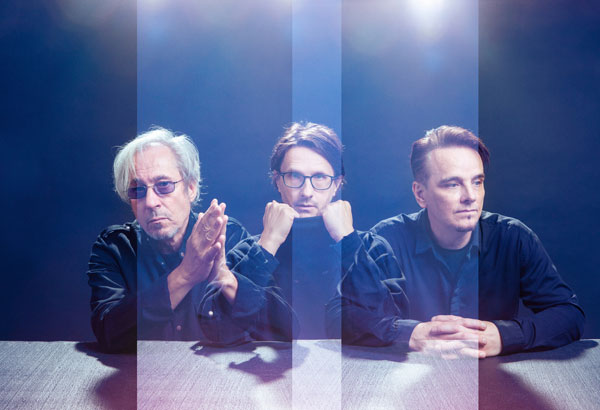
This album is a lot more collaborative, in terms of the creative input, than previous Porcupine Tree records. Why is that? Did Richard and Gavin say to you: “If we’re going to do this, we need more input”?
No the opposite. I said to them, “If we’re going to make a Porcupine Tree record, I want you guys to be writing too. Because at that point, when we started, 2012/2013, I was already a couple of albums into my solo trajectory. So my point of view was, what’s the point of me writing a new Porcupine Tree record on my own and taking it in and presenting it – as historically was the case – and just saying, “Hey, guys, I’ve written the new Porcupine Tree record”. What would be the point of that? I could go off and make that as a solo record. So to me, it was like, if we’re going to do this, let’s change things up. Let’s actually write this as a collective. Albeit that most of the songs were written in duo form, either myself with Gavin or myself with Richard, but the point is that there was always a collaborative process from the very moment of instigation of a new song and a new idea was with somebody else. So I wouldn’t say I laid down the law, but I made that one of the principles in terms of if we’re going to make a new record, then it has to be this way. And of course they loved that. In a way, they’ve been frustrated that hadn’t been the case in the past, but that goes back to the earlier point I made about this time I no longer felt that need to control everything. It was a relief for me, and I’m sure for them.
And I guess that takes the pressure off you, as well? Everything’s not on your shoulders?
Yeah. This time around, it feels pretty much like a band, where everyone has their role. So Gavin is the MD of the live band, for example. Gavin has found the two other musicians for the tour and I completely trust Gavin – Gavin is the best musician in the band, so it’s logical for him to be the person that’s sourcing the the other musicians that are going to be in the live lineup. Richard looks after all the merchandise and stuff. Now historically, I would always feel like I had to be involved in those things too. Even if I wasn’t like the primary person, I would always feel like I had to stick my oar in. Now, I don’t even know what’s going on, and I like that. I completely trust those guys in those roles. And so it feels much more pleasant to be doing it this time and to feel part of a team. And to not feel that compulsion to control everything.
What about your commercial expectations? Do you feel like there’s any unfinished business in terms of Porcupine Tree, getting some deserved success? I read you said that you weren’t interested in making this a ‘commercial/crossover’ album, but you must be hoping that this is going to be the highest charting Porcupine Tree album so far in your career?
Well, yes and no. I mean, there are a number of caveats to that. Firstly, the music world we left in 2010 is unrecognisable from from the way it is now. And you know, and I know – we’ve discussed this, I know – that the whole notion of chart positions, particularly for rock acts, has become… I wouldn’t say meaningless, because it still means something, particularly for someone like myself, and you, because we grew up with the notion of the charts as being, a key signifier in what we would listen to and what we were discovering. And it’s very hard to get that romantic notion out of your head, that the chart still means something. But it doesn’t really. I mean, rock acts, as we see, time and time again, go into the top five [of the UK album chart], week one, and then disappear off off a cliff edge, week two. And that’s partly down to the fact that most rock music now exists outside of the mainstream, and is therefore fanbase driven.
Most rock music now exists outside of the mainstream and is therefore fanbase driven
Steven Wilson
So your fanbase will pre-order your record and that’s why, coming into your world, the notion of the Super Deluxe Edition has become so important, because that’s what fans want to buy. That’s what they invest in, and they’re happy to buy that six months in advance of the record coming out. So what happens is that week one, your album flies, soars into the top five – it might even get to number one, if you have a good week. And then week two, you’re campaign is over, which is completely different to the way it used to be, where you’d obviously have the second, third, fourth, fifth single off a record which would keep your record, active for months and months on end. And that just doesn’t happen anymore. I mean, it happens with a very small minority of mainstream pop records. And it happens with a very small minority of Greatest Hits records by, you know, the sort of acts that time and time again, are rediscovered: the Eltons, the Fleetwood Macs, the Queens etc. That’s it really. If we if we get a number one record, it’s going to be wonderful. Will it mean anything in the longer term? No, what will mean something? What will mean a hundred times more than getting to number one in week one, is if we were still in the top 10, in week two. If we get number one record that will be an amazing, amazing thrill. But it really depends on what else comes out that first week if Drake decides to drop his new album that week forget it. I mean, that’s what happened to Tears for Fears, isn’t it? [a reference to UK rapper Central Cee beating Tears For Fears to number one in early March 2022].
Fans from way back have been asking about [bass player] Colin Edwin, and wondering why he wasn’t involved in this project. What’s the story on that?
There isn’t really a big story. There are lots of little things that conspired to make it the way it was. I think the first thing was that the very genesis of the project was me wandering over to Gavin’s place for a cup of tea one day, and him suggesting we have a jam. And I looked around his studio and he didn’t have a guitar, but he had a bass guitar. So I picked up the bass guitar. And I think that one of the very first times we got together we started jamming that groove at the beginning of ‘Harridan’, which opens the record. And we had a few sessions like that where I didn’t even bother bringing a guitar – I was enjoying playing the bass. Like a lot of guitar players, when I pick up the bass, I tend to play it like a guitar player. So I do a lot of stuff quite high, I play melodies, I play chords, things that perhaps a “proper bass player” might not think to do. And so the very fundaments of the record, the very basis of the record, the DNA the record comes from, was built on me and Gavin jamming with me on bass, playing bass in my style, which is very different to Colin’s style. So in that sense, it became a bit of a fait accompli, by the time we had three or four songs, it was like, “oh, okay, I guess I’m the bass player on this record, then”. But there were other things. None of us heard from Colin for years on end. We all went our separate ways in 2010, and I would regularly hear from Richard and Gavin: “When are we going to do something new?”, “Should we get together?”, “Should we have dinner?”, “Should we have a cup of tea?” I didn’t hear from Colin, I still haven’t heard from him. So he wasn’t proactively pushing to be involved in anything new. But I think on top of all of this, the way I see it, the creative core of the band has always been the three of us. So it’s Gavin’s interest in complex drums, time signatures, polyrhythms; Richard’s emphasis on sound design and textural keyboard playing. Both of those things, filtered through my singer-songwriter sensibility. And again, going back to the very beginning, Porcupine Tree started as a solo project, so I played bass. On the first three Porcupine Tree albums, I played bass. And I played bass occasionally on tracks in the intervening period as well, when it was more my style that I wanted on the bass, more aggressive, more guitar-orientated style. So tracks on [2002’s] In Absentia and [2005’s] Deadwing I play bass on, so it’s not completely unprecedented.
Are you looking forward to the tour? Amusingly, in your book, you say how, apart from the Royal Albert Hall Show in 2010, you were never really big enough to not be in each other’s pockets on the road and getting on each other’s nerves, on tour buses and the like. Clearly, it’s gonna to be a slightly different scale with this new tour, but do you foresee any problems spending two or three months on the road together? At the end, will you be quite happy to walk away, or will you have forged even stronger relationships, do you think?
It’s a good question. And the answer is, of course, that we don’t really know until we do it. I mean, it’s 12 years since we toured. And we’re all supposedly older and wiser, and more relaxed about what we do. Certainly the process of making the album, I think, was the most pleasant process I’ve ever had recording a Porcupine Tree album. I hope that will continue through into the touring; I suspect it will. Listen, we’re still going to get on each other’s nerves; we are very different as people. What we all share is that we’re all English and have that repressed English thing [laughs] about not really expressing ourselves. It’s funny, because my wife is Israeli and the Israelis are the complete opposite. They express everything and are very emotional people. And I’ve had to learn to be a little bit more like that with my wife. But we’re very English and I think we all have our own way of doing things. Richard is extremely meticulous, for example, and I’m not. I mean, I know people might find that surprising to hear but my process is quite scattershot, in a way. I work very fast, and in a way that some people might consider to be quite disorganised. Whereas Richard and Gavin are much more organised. I mean, they all show up on the first day of rehearsals knowing everything and having planned everything. I’ll show up and my pedal board will be in disarray. I won’t have learned any of the lyrics, I won’t know the chords. Because the simple fact is, I’m doing 100 things at once, in my professional career. I mean, hopefully it’s not going to be quite like that, but there’ll be an element of it, anyway. So we’ll probably still wind each other up. But I think there’s going to be a lot more fun, as well, on this tour, perhaps than there was on the the last one.
You’ve called the album Closure/Continuation, which obviously, leaves the door open – if not wide open, then maybe ajar. Is Porcupine Tree going to be just like No-Man where it will never shut down? It will just be floating there as something that you could come back to in the future?
Possibly. There is obviously an implied question mark in the title, because we don’t know ourselves…
Have you got a one-album deal with the label? How has that been structured?
We have no pressure; we’re under no obligation to make another record, or to do another tour. And I think it’s very important to us that we would always feel like we would only make another record if we felt we had something to say. For a long time, I’ve believed that if you’re going to make a record you have to ask yourself the question, “What does this add to the catalogue?”. “What is the purpose for making this record?” And again, this goes back to that idea of not wanting to do just more of the same. And I say that because I think a lot of bands do get stuck in that cycle where they’re simply creating more of the same, more of the same, more of the same… what you might call the AC/DC syndrome, almost pointlessly adding records to the catalogue that really add nothing musically to the legacy at all. I’m sorry to pick on AC/DC, because I love AC/DC [laughs] but they’re the best example, I can think of – a band that essentially have been making the same record most of their career, and their fans love that. And that’s great. But I do feel this new record justifies its existence in the catalogue, it feels like a new take on the band’s sound. And we would have to feel like we could find that again. So we’re not closing the door. But I think the most important thing for us if this was the last record, I think it’s a really strong way to close the book, a really strong way. And I know from speaking to Gavin and Richard, we all felt the same in that the last record we made, [2009’s] The Incident wasn’t our best record; it didn’t feel like a particularly good way to end things. It wasn’t a bad record, but it wasn’t the best record. And so if Closure/Continuation was to be our last record, I think we’d feel good about that.
Thanks to Steven Wilson who was talking to Paul Sinclair for SDE. Closure/Continuation will be released on 24 June 2022 via Music For Nations.
Browse the Official Porcupine Tree Shop for box sets, coloured vinyl and bundles.
Book to see Porcupine Tree play live at Wembley on 11 November 2022.
Compare prices and pre-order

Porcupine Tree
Closure Continuation - 2LP silver vinyl

|
|
||||||||||||||||||||||||||||||||||||||||||||||||||||||
Compare prices and pre-order

Porcupine Tree
Closure Continuation - 2LP black vinyl
Compare prices and pre-order

Porcupine Tree
Closure Continuation - CD edition

|
|
||||||||||||||||||||||||||||||||||||||||||||||||||||||||||||


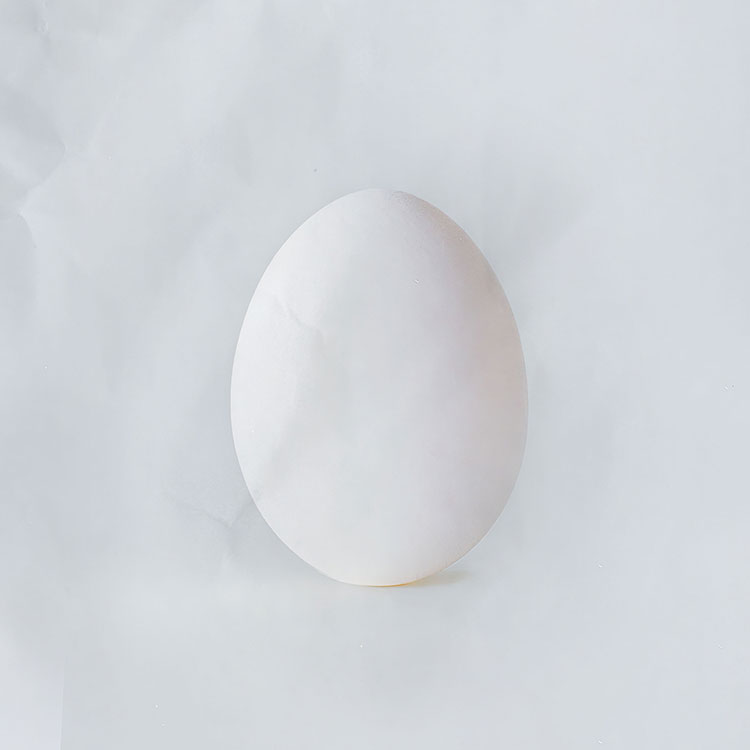
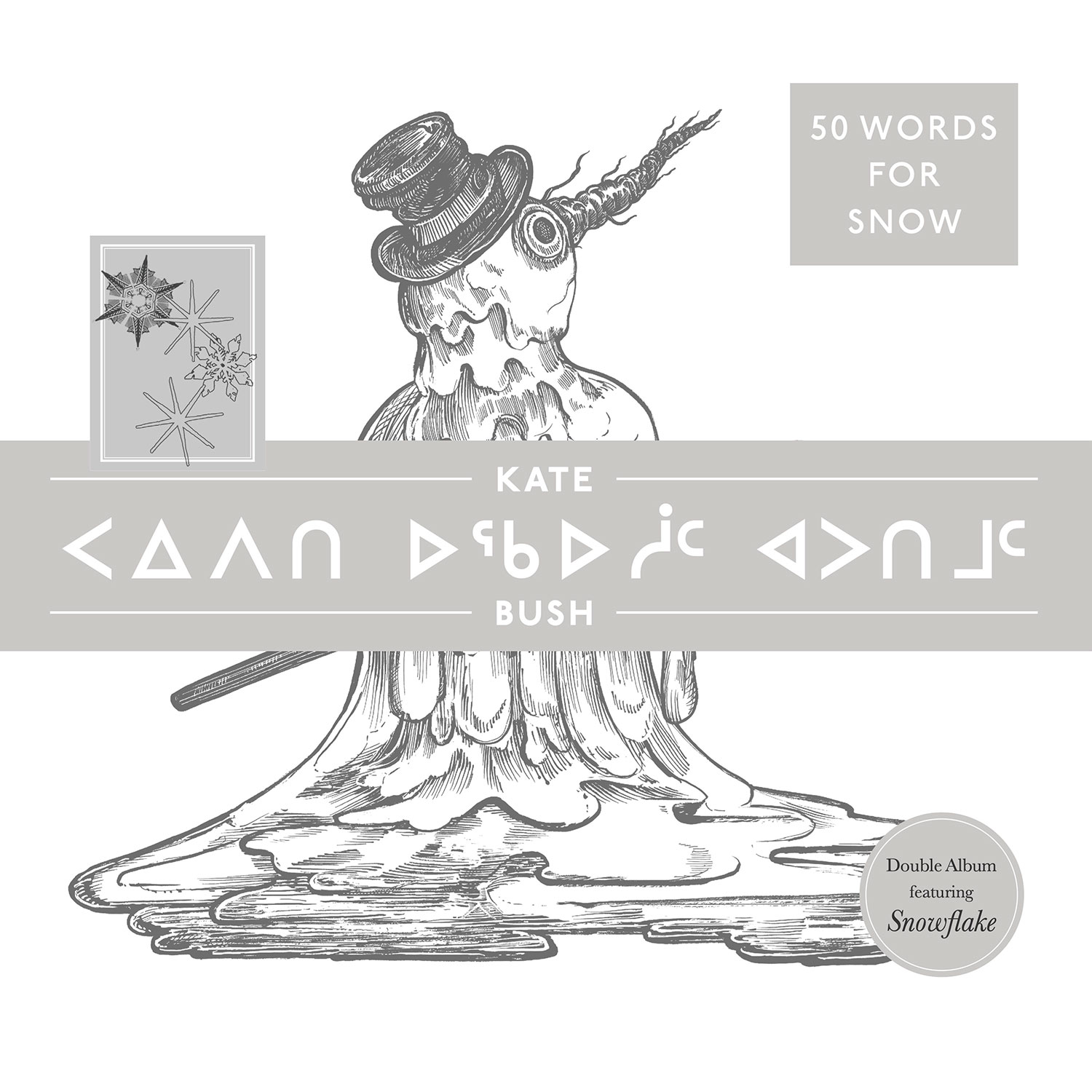

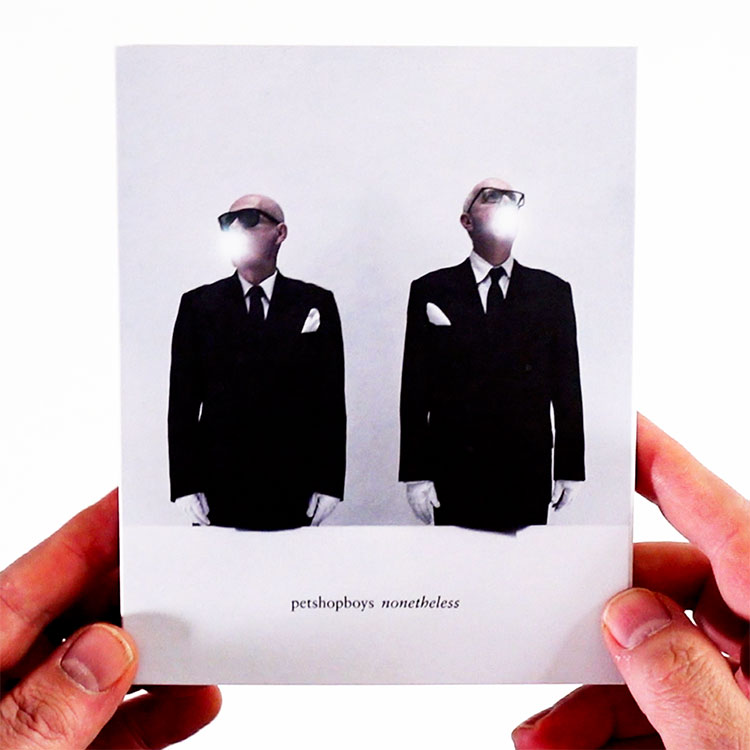
 SDEtv
SDEtv
By Paul Sinclair
22